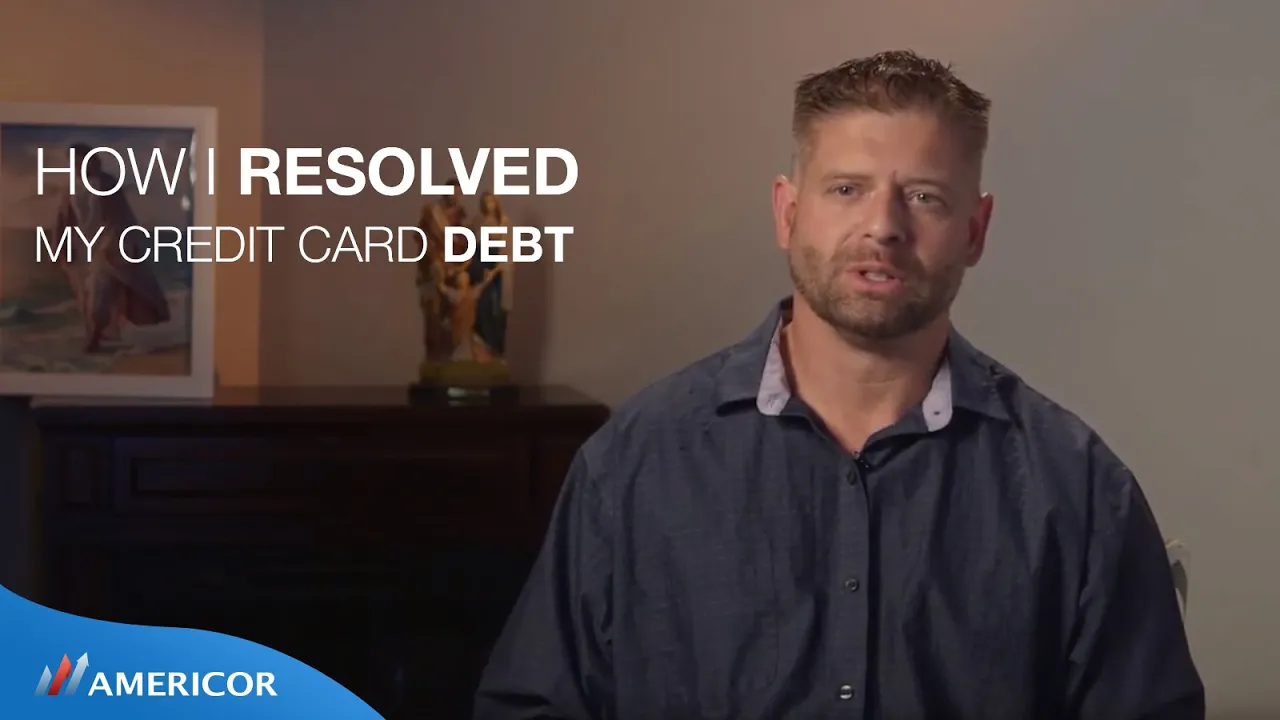Alabama Living No Longer Comes Cheap
For decades, life in the state known as the ‘Heart of Dixie’ has been relatively affordable. Alabamians enjoy amazing year-round weather, spectacular Gulf Coast beaches, and vibrant Southern culture, as well as some of the most successful college football programs in the NCAA’s history. The Alabama-Auburn rivalry isn’t just one of the best in the SEC—it’s one of the best in sports, period.
Despite everything Alabama has to offer, the state’s cost of living is regularly ranked among the lowest in the country. The annual living wage for a family of four in Alabama is $80,777, compared to well over $100,000 in places like New York and California. However, the flip side of this is that wages in the state remain low, and poverty remains high—$80,777 is more than twice the average salary for workers in transportation, sales, or office administration.
Alabama Debt Relief
Alabama’s median household income is actually just $52,035, with 14.9% of the state’s population living in poverty. The disparity between the income needed to sustain a decent standard of living and the actual income earned is significant, leading many workers to rely on credit card debt to make ends meet. On average, Alabama households carry $5,672 in outstanding credit card debt. While this figure is roughly average compared to other states, it is alarming when considering Alabama’s high poverty rates. As a result, thousands of people in the state are actively seeking Alabama debt relief.
How can minimum payments cause a debt problem?
Banks and credit institutions charge interest on their loans; that’s how they make money. All credit cards, personal loans, mortgages, and car loans incur interest charges.
Credit cards have high-interest rates because they are unsecured loans. The minimum monthly payments on your credit cards only cover the interest charges. Therefore, when you pay the minimum payment, you are not reducing your debt level; you are merely paying the interest to your bank.
When you use your credit card and increase the balance, minimum payments also increase, but once again, it’s only covering the interest charges.
Eventually, your debt can spiral out of control, leading to an unsustainable level of debt on your credit card. In such situations, you may require debt relief. Fortunately, Americor services are available to you for assistance.
What if I don’t pay the minimum payment? What is delinquency?
The credit card delinquency rate refers to the percentage of people who fail to make the minimum payments on their credit cards for two consecutive months. In Alabama, the credit card delinquency rate is 8.53%, which is above the national average.
When your credit card becomes delinquent, you will be charged late payment fees, and the interest rate on your card will increase because you are perceived as a risky client.
If you consistently fail to make monthly payments, you will default on your credit card debt. At that point, you need the assistance of Americor debt specialists to help you escape the debt trap.
What Causes Credit Card Debt?
Credit card debt is common not only in Alabama but across the United States. There are several reasons for this, starting with rising inflation and the high cost of living.
Income and high prices
The current inflation has increased the prices of groceries, gas, and utilities. It’s no wonder Alabama residents are finding it hard to cover their household expenses with their salaries.
Sometimes even normal salaries are not enough to pay for all the things a family needs, which is when Alabama residents turn to credit cards and personal loans.
When you frequently use your credit cards to make ends meet, your credit card balance will balloon, and you could end up needing debt relief. Americor can provide debt relief programs in the state of Alabama that can help you overcome a debt crisis.
Life happens
Life events happen, and sometimes they upset people’s finances. A divorce, the temporary loss of a job, or a funeral can turn well-managed finances upside down. Credit cards are the go-to solution to help pay for expenses that life throws at us.
When you lose your job, you still have to pay for groceries and gas bills. A divorce can unsettle anyone’s finances as they try a new way of life.
Unless you have a solid plan on how you are going to repay your credit card debt, it can become daunting to witness your credit card balance get out of control.
Unexpected expenses
Unexpected expenses, such as a costly car repair or an essential home repair, can catch us off guard. Typically, people turn to their emergency funds to handle these unanticipated costs. But what if you don’t have any savings to fall back on?
In such cases, many Alabama residents find themselves resorting to credit cards, with the intention of paying off the balance at a later date. Unfortunately, this approach becomes problematic when additional day-to-day expenses arise, making it increasingly difficult to repay the growing credit card debt.
Alabama Debt Relief Solutions
Thanks to the assistance of Americor debt specialists, many individuals in Alabama state, facing financial hardship, are able to navigate and manage various forms of debt, including credit card debt, with the help of relief programs.
Credit counseling in Alabama
Credit counseling can help Alabama residents get a better grasp of their finances. Additionally, credit counselors provide valuable ideas and advice on streamlining expenses to create space for debt repayment.
Credit counselors can suggest making small changes in your everyday life and provide valuable information and resources to help you better manage your finances and find room to repay your debts.
Debt consolidation loans in Alabama
Americor debt specialists can help you understand and find the best debt consolidation loan for you. Debt consolidation loans roll over existing debts into one single debt with one monthly payment.
If you’re due for debt relief, it’s important to understand all the options available to you. Debt consolidation loans are easier to keep track of and to pay because you only have one payment a month. With a fixed interest rate and fixed monthly payments, borrowers are not faced with surprises or fluctuating rates.
This type of debt relief loan often provides better terms and rates, especially when compared to the average credit card.
A debt consolidation loan can give you the necessary space to reorganize your finances and repay your existing debts in a way that fits your income.
Americor debt specialists understand the process of debt consolidation, offering relief options to reduce your debt. Contact us today to learn more and get started on finding the best debt relief program for you. By getting your free consultation today, you can take the first step towards getting back on track and regaining your financial stability.
Debt settlement in Alabama
Americor debt specialists can negotiate on your behalf for debt settlement, offering you relief from crippling debts. By choosing debt settlement, you have the opportunity to reduce up to 50% of your debt.
To ensure successful negotiations with your creditors, it is important to trust Americor, as they will stand by your side and assist you in securing the largest reduction and the most favorable repayment terms.
Debt settlement provides you with the opportunity to regain your financial stability and start anew. However, it’s important to note that it may have an impact on your credit score. With prudent financial management, you can expect your credit score to recover within a couple of years.
Debt management in Alabama
Debt service managers specializing in relief in Alabama help residents with a Debt Management Plan (DMP) to repay their debts on better terms. Debt management can lower the interest rate on your debt, waive late fees, and extend the repayment period to make it fit into your personal finances.
A DMP offers a way forward to repay the totality of your debts in a custom-made structure.
Bankruptcy in Alabama
Bankruptcy is a serious step to take because it stays on your credit score for ten years. This means it can be difficult for you to get a mortgage or car loan.
If your debts are beyond manageable and you can’t repay them no matter how hard you try, filing for bankruptcy might be the only way to help you reach a stable financial standing. You will need legal advice and help from a specialized lawyer to file for bankruptcy and you might be expected to liquidate part or all of your assets as part of the deal.
Get out of Debt Quickly in AL
Alabama debt relief doesn’t have to be complicated. Once you break free from monthly minimum payments, there are several debt relief options available for getting back on your feet.
Call us today and take advantage of a free consultation that can help you find debt solutions tailored to your specific situation. It’s crucial to work with a reputable debt settlement company fully accredited by the Better Business Bureau (BBB) and ensure you understand the terms and conditions of any program.
Whether you’re struggling with credit card debt, student loan debt, or other types of debt, reaching out for help can set you on the path to financial relief.
Our Clients Say...
-
Lannie D.





“In 2020, I was drowning in debt. I enrolled in Americor for my 10 creditors for $110,000… and today (three years later) I have cleared my entire balance. It was not an easy process, but Americor guided me through and I am debt free!”
-
Matthew E.





“I was down $80k in business debt, and I remember hearing Americor radio advertising. My credit score was down to 570 from 810. I’ve been in the program for over 3 years. It works, just be patient. And my credit score is currently back up to 710!”


